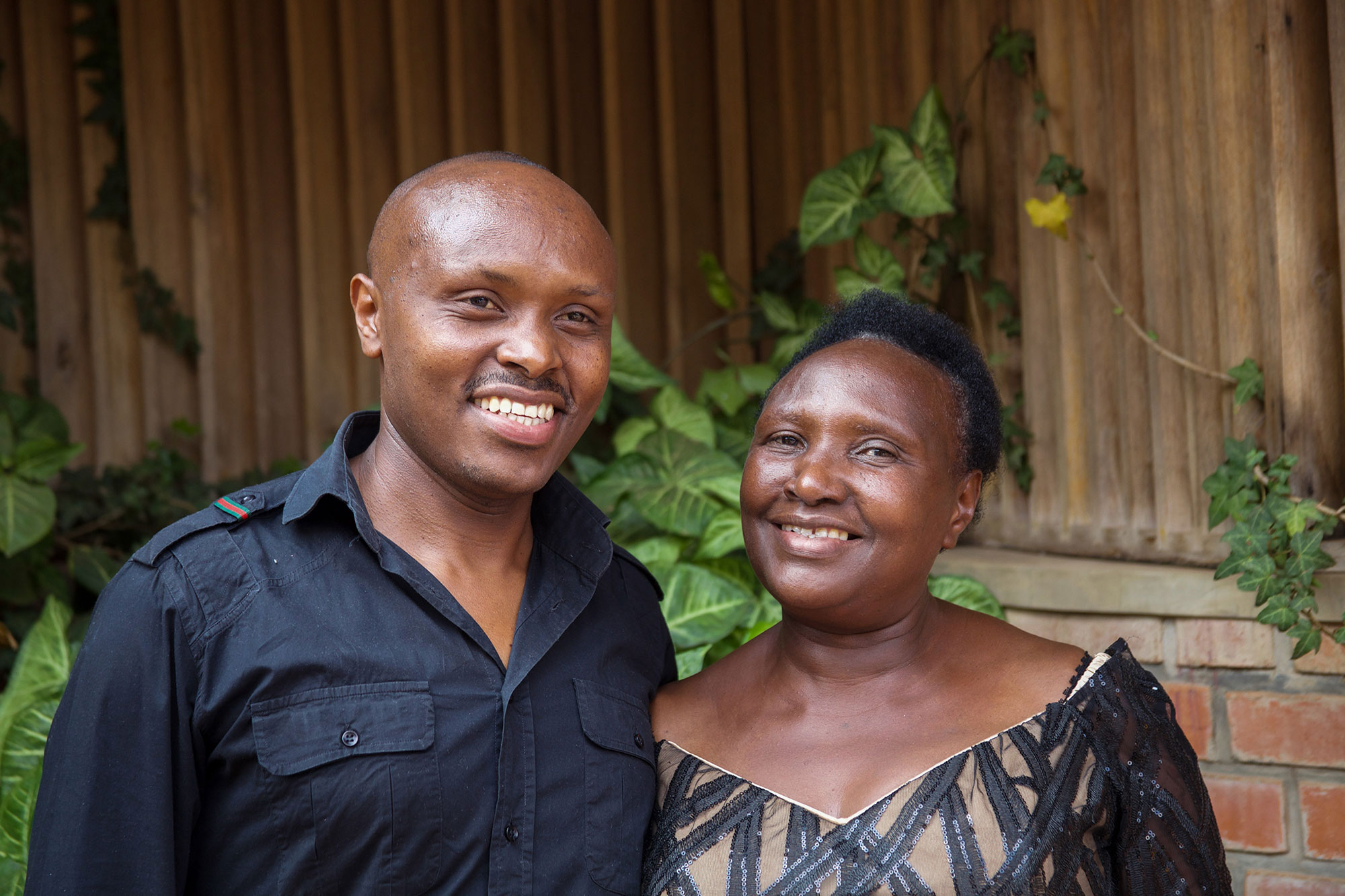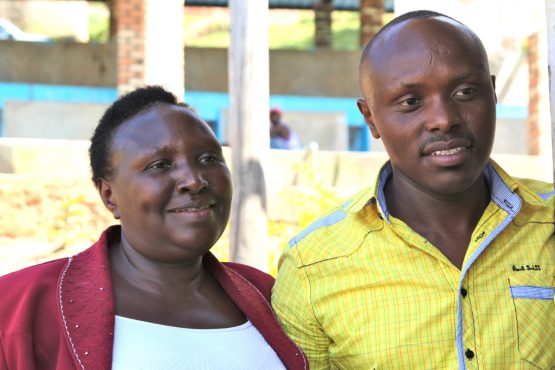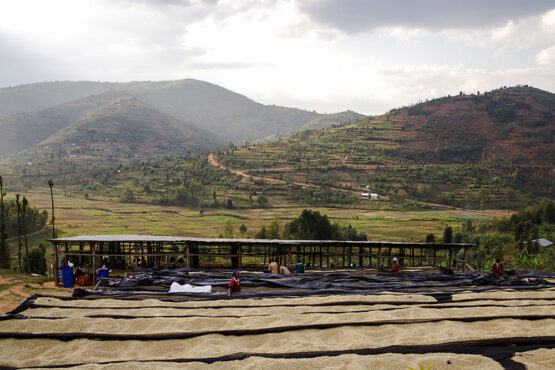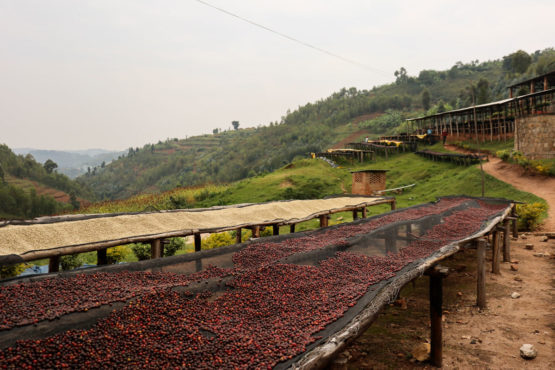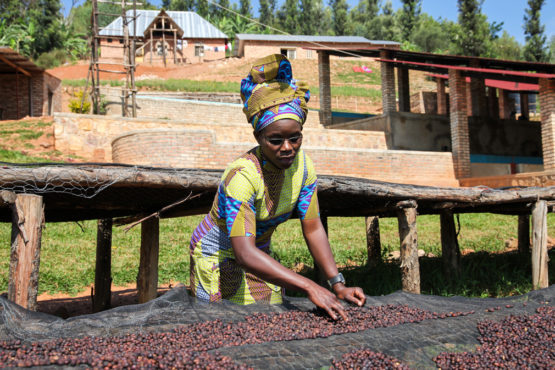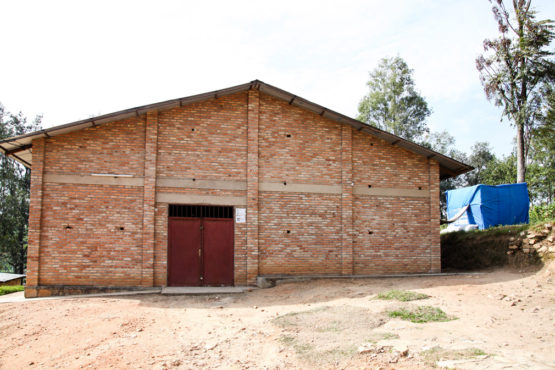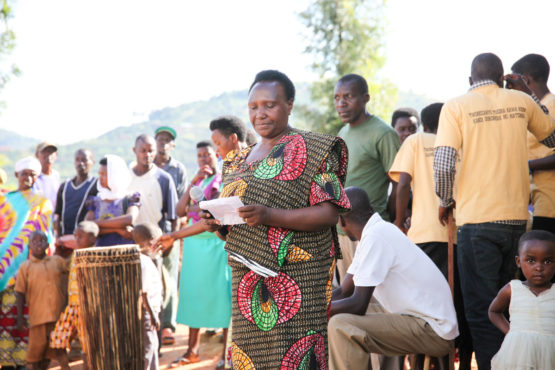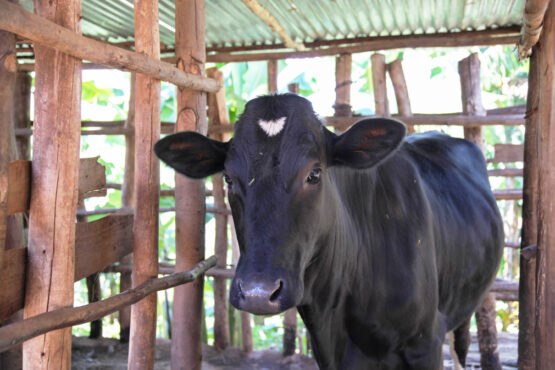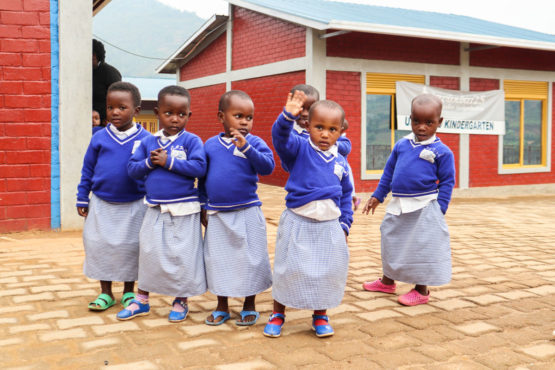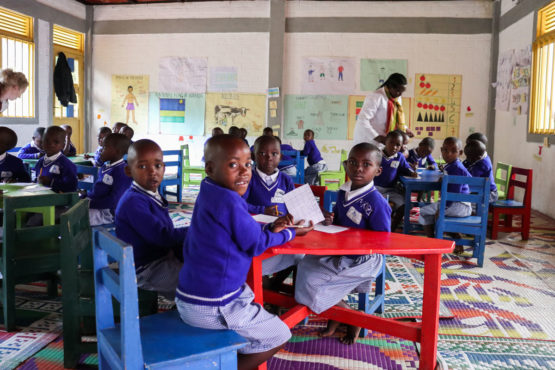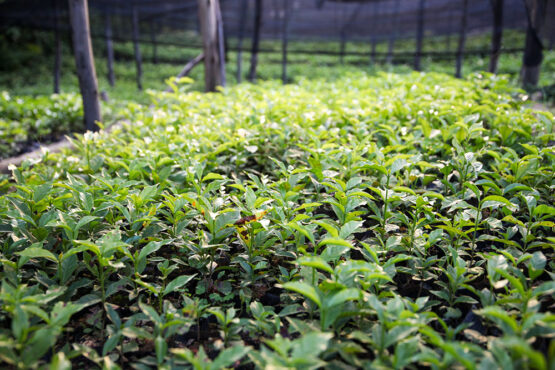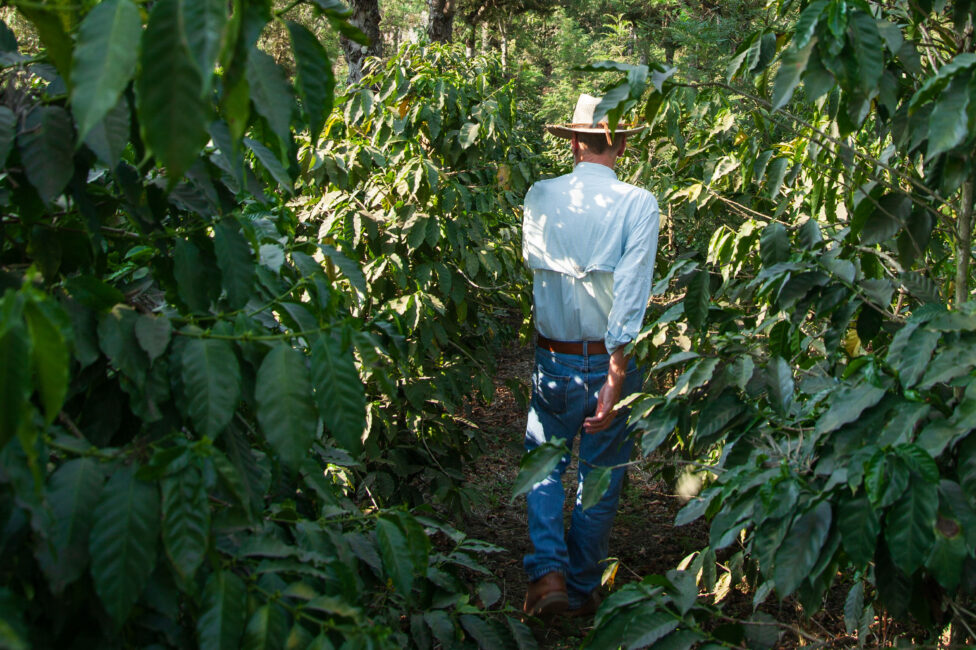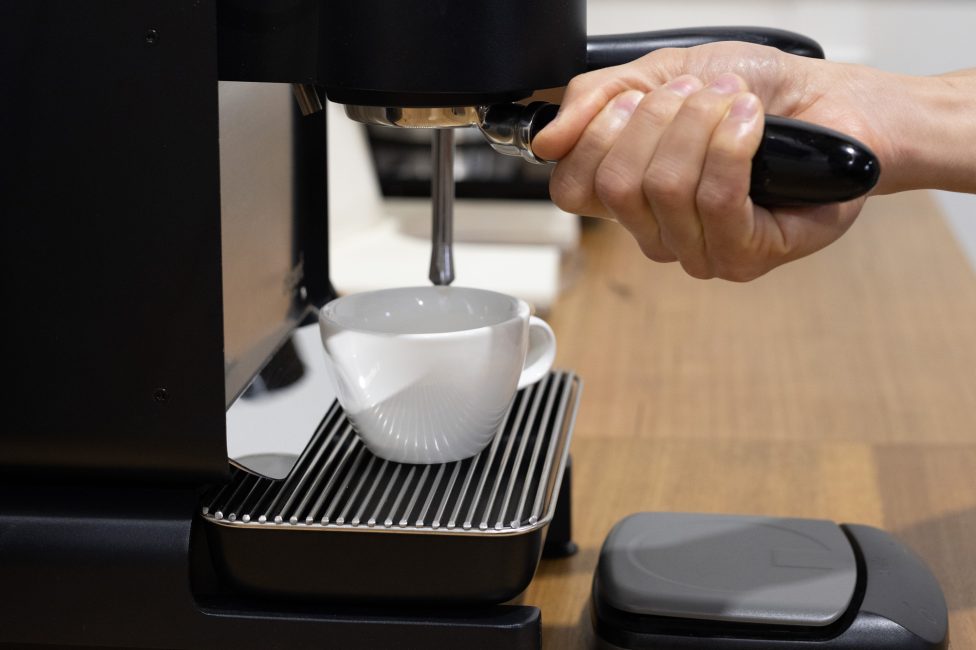Buf Coffee
Founded by the pioneering Epiphanie Mukashyaka in 2000, Buf Coffee is now internationally recognised for its exceptional coffees and socially responsible practices. Buf’s commitment to progressing the social, educational, and financial standing of rural, coffee-farming communities has been hugely influential for many members of the specialty coffee industry, both in Rwanda and beyond.
Buf Coffee was founded in 2000 by Epiphanie Mukashyaka, a pioneering businesswoman and a source of inspiration to countless other female entrepreneurs in Rwanda’s coffee community, and beyond. Buf is owned and operated by Mukashyaka – known to all as Ephiphanie – and her son, Samuel Muhirwa, who has taken an active role in the day-to-day operations of the business as the company’s Managing Director. The word ‘Buf’ is derived from ‘Bufundu’ and refers to the former name of the region in which all of their washing stations are located.
Epiphanie’s story is one of great resilience and fortitude. After losing her husband and a child during the horrific 1994 genocide, Epiphanie was faced with the responsibility of independently caring for and rebuilding a life for her seven surviving children. With limited education and little money or support, Epiphanie, whose husband had been a coffee farmer, decided to focus on coffee as a means to a better and more stable livelihood. By participating in the USAID-financed program, Partnership for Enhancing Agriculture in Rwanda through Linkages (PEARL), Epiphanie began to learn more about specialty coffee propagation and processing. This transformational program aimed at switching the focus of Rwandan coffee production to quality, rather than quantity, and thereby ending reliance on the notoriously volatile coffee commodity market. Through the program, farmers were given access to far higher-earning specialty coffee market. PEARL and its successor, Sustaining Partnerships to Enhance Rural Enterprise and Agribusiness Development (SPREAD), have been invaluable in helping in assisting Rwanda’s small scale coffee farmers to rebuild their production in the wake of the genocide, and the world coffee crash of the 1990’s.
Using the knowledge and resources she gained through PEARL, along with a small loan from the Rwandan Development Bank, Epiphanie was able to establish Buf Coffee in 2000. Buf’s first coffee washing station, Nyarusiza, was purchased in 2003. Epiphanie was the first woman to own a private coffee company and to establish a washing station in Rwanda. As she says, “I came up with the idea to build this, and nothing was going to stop me.” Nyarusiza was followed by Remera in 2007 and now the family also own two other washing stations, Umurage and Ubumwe.
Before the proliferation of cooperatives and centralised washing stations in Rwanda, small farmers sold semi-processed cherries on to a middleman, and the market was dominated by a single exporter. This commodity-focused system – coupled with declining world prices in the 1990s – brought severe hardship to farmers, some of whom abandoned coffee entirely.
Today, it’s a different story. From the beginning, Epiphanie’s goal has been to produce high quality, specialty-focused coffees by improving farming and processing practices and maintaining high standards at each of her washing stations. In doing so, she has been instrumental in shifting the focus of the Rwandan coffee industry from producing high quantity, commercial lots, to more specialised, high-quality lots. The farmers that sell coffee cherry to Buf’s washing stations have benefited directly through increased income, and also indirectly through the access to important community resources like safe water and electricity, which have been brought to their villages via the establishment of the washing stations.
Buf Coffee buys cherry from over 2,277 smallholder farmers and 48 different farmer groups in Nyamagabe and Huye Districts of Rwanda’s Southern Province. The company has strong links with the local communities around their washing stations and provide hundreds of jobs during peak harvest (May-July) as well as 35 permanent positions year-round.
Buf Coffee’s exceptional quality has been recognised year after year. It was awarded a prize in the 2007 Golden Cup and placed in the Cup of Excellence in 2008, 2010, 2011, 2013 and 2015.
Epiphanie and Sam care deeply about the communities they work with. Outside of providing economic opportunities, Buf has initiated many social projects that support farmers in improving their and their family’s quality of life. In 2018 Buf partnered with the Rwandan Government’s One Cow per Poor Family program to distribute 500 cows across organised farmer groups within their supply chain over a five year period. Farmer groups nominate the member that should receive the cow with an expectation that the cow will eventually be bred, and its calves gifted to other members in the same group, creating a positive and ongoing ripple effect within the community.
Besides practical advantages, like being an opportunity for additional income and providing dairy to feed the family and excellent manure for the coffee farms, cows are also a traditional symbol of wealth and status in Rwanda. By gifting a family with a cow Buf is not only providing farmers with a source of nutrition and alternative income to coffee, it also reinstates a sense of pride to the household (which most likely suffered devastating effects from the genocide).
In February of 2019 Buf opened a kindergarten next to Nyarusiza coffee washing station to service the children of local coffee farmers and washing station workers. While school is compulsory in Rwanda, kindergarten is not, and Sam noticed that many families weren’t able to work and supervise their small children during the busy coffee season. In partnership with Swedish coffee company Selector Coffee, Buf was able to open Umuvumu Kindergarten, which now has over 150 students aged between 3–6 years old. The children attend kindergarten from 7.30 am–12 pm, allowing their parents to put in a full morning’s work in the field or at Nyarusiza before picking them up. Tuition is free and the kids are currently provided with breakfast and will also be given lunch once the kitchen building and dining hall have been completed.
HOW COFFEE IS PROCESSED BY BUF COFFEE
- The ripe cherries are picked by hand and then delivered to the washing station either on foot, by bike, or by trucks that pick up cherries from various pick-up points in the area.
- Before being pulped, the cherries are deposited into flotation tanks, where a net is used to skim off the floaters (less dense, lower grade cherries). The heavier cherries are then pulped the same day using a mechanical pulper that divides the beans into three grades by weight.
- The beans (in parchment) are then dry-fermented (in a tank with no added water) overnight for 8–12 hours. They are then sorted again using grading channels; water is sent through the channels and the lighter (i.e. lower grade) beans are washed to the bottom, while the heavier cherries remain at the top of the channel.
- The wet parchment is then soaked in water for around 24 hours, before being moved to pre-drying beds where they are intensively sorted for around six hours. This step is always done while the beans are still damp because the green (unripe) beans are easier to see. It is also always done in the shade to protect the beans from direct sunlight (which they have found helps to keep the parchment intact and therefore protects the bean better).
- The sorted beans are finally moved onto raised African drying beds in the direct sun to dry slowly over 10–20 days. During this time the coffee is sorted carefully for defects and turned regularly to ensure the coffee dries evenly. It is also covered in the middle of the day when the sun is at its hottest.
- Once at 11–12% humidity, the coffee (still in its parchment) is stored in the washing station’s warehouse in carefully labelled lots until it is ready for export. The coffee is then sent to Buf’s dry mill, Ubumwe (built 2017), to be dry-milled. Here the parchment is removed, and the beans are sorted again by hand and using machinery to remove any physical defects. This is done under the watchful eye of Edouine Mugisha, who has worked with Buf since 2011. Having control over the milling of the coffee means that Buf has greater control over the quality of sorting and processing from cherry delivery right through to export.
LOOKING TO THE FUTURE
Although the effects of the Covid-19 pandemic have delayed some of Buf Coffee’s plans, they have been busy investing in ways to improve the lives of farmers they work with, and the quantity and quality of coffee they produce. As part of their cow donation program, Buf have increased the number of donations and begun training farmers on how to use manure, plant waste and raw materials from coffee processing to make the compost used in the production of organic coffee. Not only is it an important practice in sustainable agriculture, but it also adds value to the coffee being produced – especially once certification is completed.
Buf have also recognised the need to empower women and the younger generations to stay engaged in the coffee industry. Many in the current generation are turning away from coffee, leaving behind an ageing population of farmers, who tend to be less interested in adopting new techniques to improve or increase production. Buf is carefully working on a plan to address the challenge, as it is both a social and economic one. We are eager to get involved and excited to see where it leads them!
